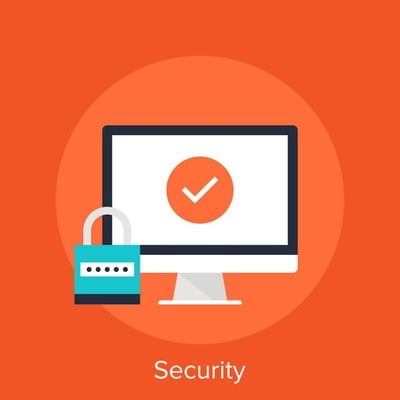When someone's personal data is lost or stolen, major problems ranging from difficulty accessing personal records to identity theft can occur. To help prevent these things from happening, the law places certain data protection responsibilities on companies like yours when you collect personal data from customers and employees. Non-compliance with these data protection responsibilities will cost your company, so it's important that you adhere to them. That being said, here are the most important responsibilities that you need to keep in line with, according to regulations set forth by the Office of the Privacy Commissioner of Canada:
What are the Data Protection Responsibilities of Your Business?
Topics: document protection, data security
There are countless data thieves who want to steal your company's data so that they can commit fraud or take your assets. You will always be a target, so you must be proactive about protecting your data. To prevent data theft at your business, you need to invest in information security resources and establish an effective information security policy.
Topics: document security, data security, information security, data theft
How Going Digital Increases Privacy and Security of Health Information
Protecting the privacy and security of health information requires more than a lock and a key. In order to keep your patients' records secured, you must take advantage of the benefits of digital record keeping.
Topics: healthcare, data security
Information Security Issues That May be Plaguing Your Business
No matter how big your company is or what industry you operate in, information security is a concern. Your company's data is one of your most valuable assets; before you can protect your company against a threat, you need to understand what it is. To that end, consider how the following information security issues may be plaguing your business:
Topics: data security, information security
Developing an Information Security Policy for Your Workplace

Digital technology has dramatically altered how we manage our data. Instead of dealing with more paperwork than a single person is strong enough to carry, we are able to store millions of documents on a device smaller than a human hand. Instead of shipping copies of paperwork via mail or courier, we can deliver a communication in seconds via a slew of online file sharing options. From sharing documents faster to storing them more effectively, digital technology has provided us with many data management upgrades.
Topics: document security, data security, information security, workplace security
5 Ways Your Employees are Putting Confidential Information at Risk
Your employees are putting your company's data at risk right now. In most cases, they do this without even knowing that they are. Here are five ways that your employees are putting your confidential information at risk:
Topics: document security, data security, information risk
Is your business prepared for a natural disaster? Preparing for these unpreventable circumstances will require more than an insurance policy. This is because no amount of insurance can recover your company's data once it is destroyed. Protecting company data from natural disasters requires a specific plan. Here are the steps that you need to take:
Topics: document security, protecting paper documents, secure document storage, data security






